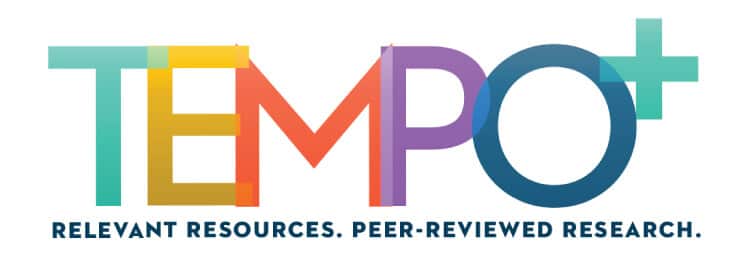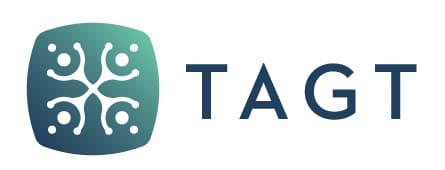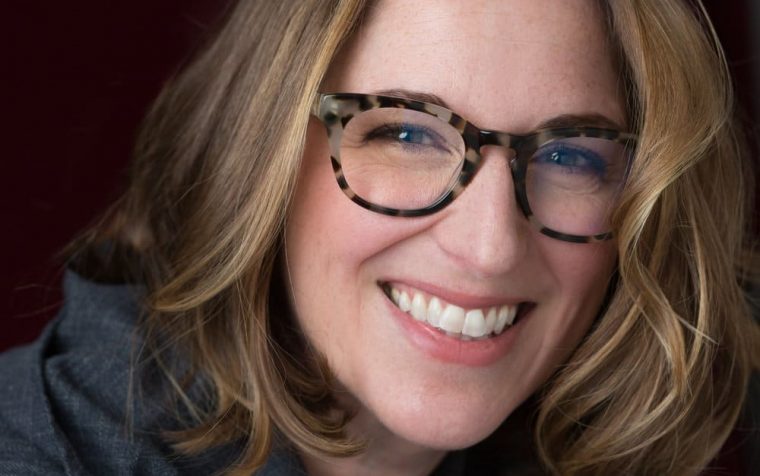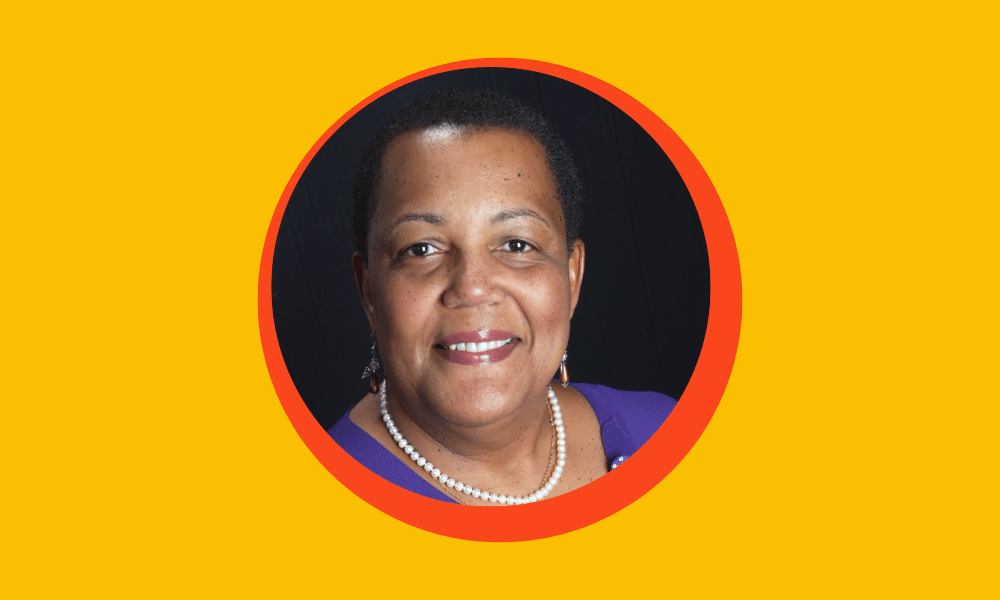Jessica Lahey—teacher, writer, speaker, and mother of two sons—offers advice to educators and parents that may come as surprises to some. With the goal of helping kids develop intrinsic motivation, confidence in their abilities, and skills to help them reach their full potential in life, Lahey encourages parents and teachers to allow kids to experience “desirable difficulties” and embrace challenging, frustrating experiences as opportunities to learn.
Krystal Goree: Please share a little information about your knowledge of gifted education and how your educational interests and insights might be tied to very bright kids. I understand that you have had experience working with gifted kids in the Duke Talent Identification Program (TIP).
Jessica Lahey: The nice thing about teaching at the Duke Talent Identification Program was that [all instructors] had to go through an entire training and many of us were just starting out as teachers who had never taught before; so, it was a trial by fire. One of the things that Duke does well is give [instructors] some insight into teaching gifted and talented (G/T) kids. [Duke provided] my first education in that. It was fascinating and it informed a lot of my teaching since then.
I’ve taught everything from gifted and talented kids in private schools to . . . (during the past 5 years) teaching kids in a drug and alcohol rehab—many of them have undiagnosed learning issues. I have taught the whole spectrum. One of the things that came about while I was teaching at a very [wealthy] private school . . . was [that I became aware of] the very high pressure that kids feel—even in middle school.
There is a lot more anxiety and angst among kids in middle school and high school simply because the stakes are up so high. One of the things we know about especially G/T kids is that anxiety levels can obviously be very high and . . . the orientation is more toward product and less about the process of learning. We, as teachers, inadvertently kill off that love of the learning itself in order to orient everyone towards “Oh, and this test next Friday . . .,” and “This is going to be on the test,” and “Let’s start prepping for the SAT.”
One of the things that I started to see a lot of, especially among those talented students, was a paralyzing fear of making mistakes—because if you make mistakes then people are going to know that you maybe aren’t as smart as you thought you were. This dovetails beautifully with the research on extrinsic versus intrinsic rewards—so how to get at, number one, quelling some of that anxiety and paralysis and perfectionism. I have written in my column in the New York Times about how it used to be a good thing to say that your kid is a perfectionist and now it is sort of tipping over into obsessive compulsive behaviorism and personality disorders that are worrisome.
So, how do we help those kids that are highly anxious and highly worried? How [do we] help them relax back into the learning and be less focused on the rewards? In the end [telling kids how smart they are] doesn’t actually feed confidence; that whole “if we keep telling kids how great they are they will feel great about themselves,” is not true. We need to help them get more attuned and help parents and teachers understand what feeds real confidence instead of this shell of confidence that we try to build up in kids. So, I’ve come at it from a bunch of different directions, but all of it dovetails nicely into this sort of package about process over product, valuing learning over the end products of learning.
I am so grateful for the Duke experience because it was the starting point for me as a teacher. In fact, I emailed one of my students from Duke yesterday! I had a question about a project that he was working on that I had seen on Facebook. One of the other kids at Duke at the time [I was teaching there] was going through a really ugly custody battle and he was working through a lot of his stress over that. He has since gone into law and works with kids that have custody issues. It has been an incredibly rewarding experience for me and continues to be.
KG: The title of your book, The Gift of Failure, caught my attention immediately—partly because the word gift reminds me of gifted, but also putting the word gift with the word failure. We know there are a lot of students who are gifted but do not achieve to their full potential. What is your feeling about gifted students who come across to some people as not caring or underachieving?
JL: What has been so interesting about those students is a lot of it comes down to boredom or a lack of feeling seen. Any time I am trying to figure out why I am on stage, it always comes back to helping students be seen. The stories I hear over and over again from my students about why they are leaving school or why they have acted out or why they started drinking often came down to feeling like they were not allowed to be who they were or there was something wrong with being who they were.
There is a fantastic documentary on ESPN that is now available for schools. It’s about Chris Herren, who speaks a lot about addiction. He talks a lot about not paying so much attention to stories about people when they hit rock bottom but paying attention to what caused them to drink on that very first day. Often it comes down to feelings of “I didn’t feel like I fit in. I didn’t feel like anyone saw me. I didn’t feel like I had a place,” and among kids who are gifted and seeing the world in a different way than their peers see the world, that can be incredibly isolating.
When I went to Duke TIP, the very first day, I could tell that these were a whole bunch of kids who were made to feel odd at home. The first day of TIP you could see them looking around and saying, “Oh my gosh, I’m allowed to be who I am and to express what is in my head and it’s not weird; it’s actually kind of cool; it’s okay to be smart.” That sense of belonging can be incredibly empowering for kids, so any time you get a bunch of kids together who can empathize with each other or you have a teacher who can empathize with those needs, I think that is an incredible gift to kids.
KG: Why did you chose that title for your book?
JL: Well, the title was a tough one and it took us a long time. It took us about 30 titles. I think The Gift of Failure is a little scary on purpose because it comes down to seeing things differently and understanding that when you make a mistake it isn’t detrimental to your identity. For girls, in particular, it really can feel detrimental to their identity. Girls and boys tend to relate to failure in different ways . . . I don’t want kids to fail, but what I do want is for kids to have the opportunity to fail and have a positive adaptive response to that failure. The only way that that happens is if they have some fluency with frustration and making mistakes and understanding that that is not going to define them. The Gift of Failure is a little bit provocative and it is that way on purpose because I want it to help parents understand that [failure] is not going to make or break a child’s life.
One of the big things that I talk about—with teachers in particular—is that the very thing that being comfortable with failure, specifically frustration, does for kids is that some of the most powerful teaching that I have requires kids to be comfortable with frustration. Increasingly my students are totally uncomfortable with frustration and they don’t know what to do if someone doesn’t give them the very next step. I want them to feel like, “Okay, I can mess around with this idea and fail, and that’s okay.”
In the preschool brain [kids] tend to think about these ridiculous silly ways to get tasks done, but when they realize that didn’t work, why that’s a failure, instead of giving up they say, “Well, what worked from that and what didn’t, what should we get rid of and what should we take forward with us?”
That is the gift, not just being able to move forward and finish the task but to understand that that is part of the process of becoming a better “me.” Understanding that “I can screw up and that is part of the task, that is part of the process, that is part of the learning.” That emphasis of process over product is really important. So, there are so many reasons that the words “failure” and “gift” are in the book title, but I think those are the big ones.
KG: Why is it so important for students to experience what you refer to as “desirable difficulties,” and is it good for all children to experience desirable difficulties no matter what their situation?
JL: There is a fantastic book called Make It Stick that came out of Harvard University a couple of years ago. I love that book, and it really explains desirable difficulties beautifully. It’s a learning tool for everyone. Essentially, the tools work this way: The harder it is for me to parse something that is in front of me—whether I have to break something down or translate it or it’s just a little harder to get into my brain—the better I’m going to remember it and the more I am going to understand it. Obviously, the word desirable is in there for a reason. But when I can’t get frustrated, I can’t benefit from desirable difficulties because it requires me to stick with the task a little bit longer in order to find out that I do have the ability to work it through on my own and benefit from the challenge. So, if kids come to my classroom door and one can handle frustration while another can’t, the kid who is going to stick with the desirable difficulties through the end is going to be the kid who is going to learn better in my classroom. It is absolutely essential for all kids.
KG: Are there methods or strategies that you might recommend to parents and teachers for transitioning from external rewards to helping kids develop intrinsic motivational practices?
JL: With older kids I think it’s actually easier because you can have a conversation with them and model exactly what you are trying to get from them. [For example], “Sweetie, I thought I was doing the best thing, but I learned some stuff—I learned these things. I am going to get better because of what I learned, and I am going to try to do better because of what I learned.” [It is important] for our kids to see us admit that maybe we could do better and we are not perfect. I think the same thing [is true] when we are trying to not do so much for kids: “I thought I was doing the best I could do, but . . . I’m going to step back. I think I have been underestimating your competence.” For older kids explaining the situation and explaining what you learned and why you’re changing what you are doing . . . works really well.
For little kids you can explain it in your own way. There is a book called The Opposite of Spoiled by Ron Lieber, and he talks about [the importance of] explaining to kids that, “You know, I have been paying you for your grades, and I’ve found that when I pay you for your grades it actually makes you less interested in learning. I want you to love learning. You’re still going to get an allowance, but we’re going to not pay you for grades anymore because it is not really the grades that are as important as learning. I don’t want you to believe that your learning is just about money or only worth money because it is worth so much more than that, and let me show you that by really valuing the learning.”
There are a lot of different ways that we show [kids] that we value the learning over the end product. Part of that has to do with not being so excited when they come home with the “A” and freaking out and going down hard on them or going silent when they come down with a low grade. [Instead], having our conversations be about process and less about product. “Interesting grade, so can we talk about how you got that grade? What are you going to do next time that is either going to improve that grade or that is going to repeat what you did to get that grade? And what are you not going to do next time that you did [do] this time? Did you get enough sleep?”
Having all of these conversations about learning as opposed to the end product can help [your child] believe you when you say that what you care about is learning. I am a big fan of talking to kids about what we are doing and, especially when we’re talking to really smart kids—our reasoning. Those kids tend to be very justice oriented and can often be very black and white [in their thinking] and very interested in the reasoning behind [decisions and thinking]. The “I’m just doing it this way and we need to accept it” does not go over very well. Conversation about the “why” tends to go over much better. And having some honesty about our process goes well with those kids.
KG: Would you elaborate on your advice to love the kid you have—not to love the kid you wish you had?
JL: I go into schools and speak to kids during the day and teachers and parents in the evening [When I] talk to the kids, I’ll ask the kids three questions (1) Do you get paid for grades? (And usually about 15% to 20% do get cash money), (2) Do you get stuff in exchange for grades? (And that tends to be 20% to 25%), (3) [Finally], I ask them to close their eyes when they answer this question, and, then, I ask, “Do you believe that your parents love you more when you get high grades and less when you get low grades?” In middle school about 80% of the kids tell me they really truly believe that their parents love them more when they get high grades and less when they get low [grades]. In high school, it is about 90%.
I then say, “Okay, I am going to talk to your parents tonight; so, what do you want me to tell them? Here’s my email address. Email me and tell me what you want me to tell your parents. What important information do you want them to know?” By far, the most common points I get from kids [are] “I am not my brother. I am not my sister. I am not my parents when they were my age, or my parents just don’t know me at all. I want my parents to get to know me.” There is that sentiment that kids are not feeling seen, not feeling heard, not feeling known. Unless we get to the point where we are actually getting to know the kids we have, they’re not going to feel like they can be their true selves.
KG: You highlight the importance of formative assessment. Could you please elaborate on your belief that if a teacher does a good job of formative assessment, the student knows what he knows and what he does not know? And how is this good for children who are gifted in particular?
JL: I love formative assessment because it . . . forms my teaching going forward. I can say, “Oh, I thought the kids knew that but clearly they don’t.” And it also is formative for the students. As you well know, one of the things we are terrible at is metacognition. So, any time we get the opportunity to exercise that muscle of metacognition it is great. In fact, when [my family and I] moved recently, we chose to live in a particular town because the school where my younger son goes to school is a high school that does a lot of formative assessment and is really thoughtful about it in ways like really pushing the envelope. You know when he does poorly on something he has to do this whole self-assessment of what he thought he understood, what he doesn’t understand, what it is in particular that he needs to talk more to the teacher about.
If I’m doing formative assessment well, I should know where all of the students are. By the time I give a summative or cumulative assessment, I should know exactly where they all are. If I don’t, then I’m not using formative assessment appropriately or well. That’s become one of the problems or reasons [formative assessment] has become a catchphrase. A lot of people are doing what they think is formative assessment but what they are just doing is testing their kids more. [It is important to understand] that formative assessment is formative for the teacher and formative for the students. And, I don’t care whether you are gifted, I don’t care whether you are a remedial student, it is really important that you get a chance to exercise metacognition. Have the opportunity to talk about what you think you know and what you don’t know and to be able to reflect back on your own learning because that builds ownership of learning. When we are doing [formative assessment] well, it’s one of the most powerful things we have.






